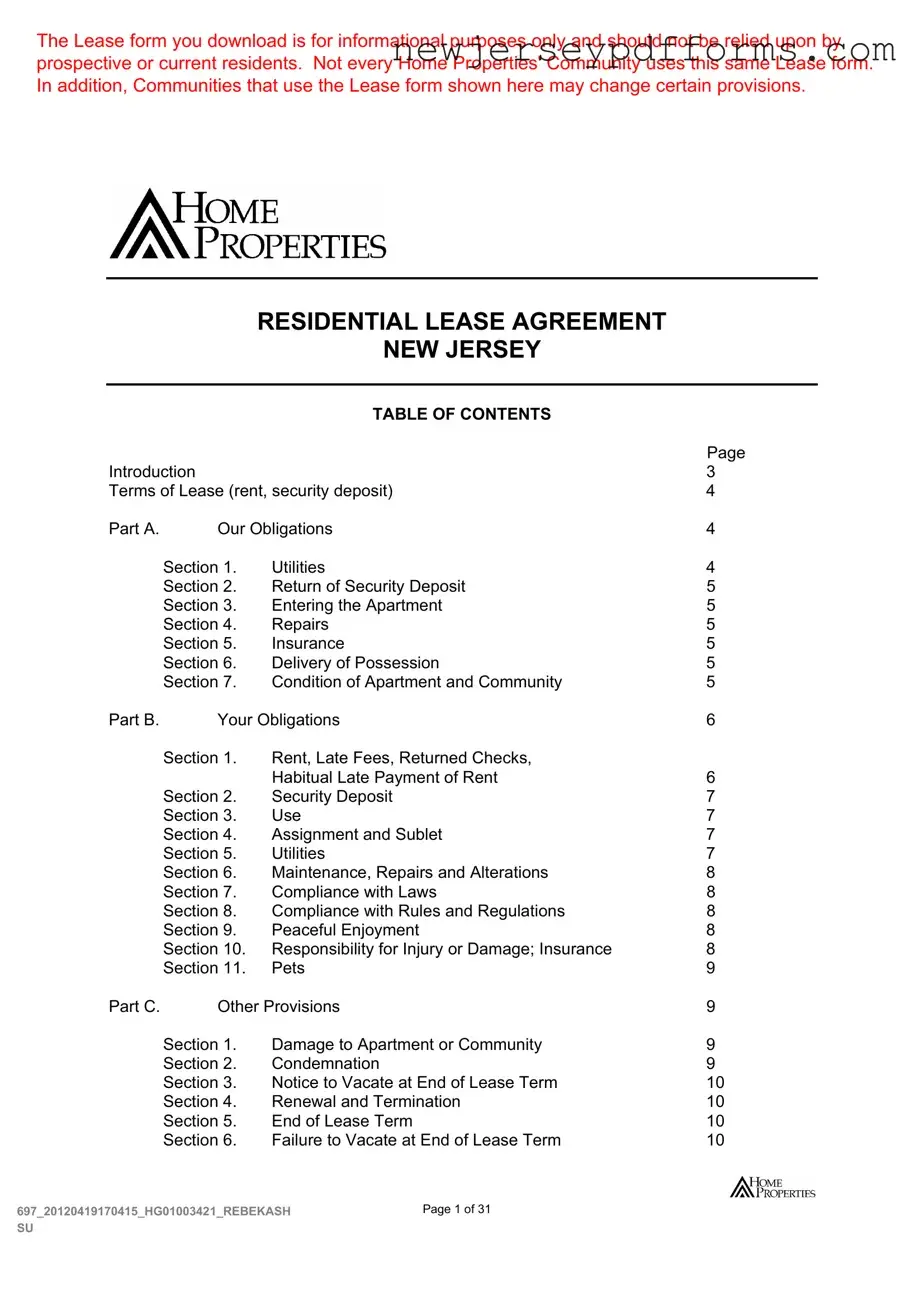What is the purpose of the NJ Residential Lease form?
The NJ Residential Lease form serves as a contract between residents and the property management. It outlines the rights and responsibilities of both parties. However, it is important to note that this form is for informational purposes only. Not all communities under Home Properties use the same lease form, and specific provisions may vary.
What does the term "Community" refer to in the Lease?
In the Lease, the term "Community" refers to the entire apartment complex where your apartment is located. This includes all shared spaces and facilities available to residents. It is essential to understand that the Lease applies to the entire community, not just your individual apartment.
How is the rent structured in the Lease?
The Lease specifies a monthly rent amount, which in this case is $1,400. Rent is due on the first day of each month. Additionally, there may be an Energy Surcharge during the winter months, which is considered additional rent. This surcharge is payable on specific months and is also collectible as rent.
What is the security deposit and how does it work?
The Lease requires a security deposit of $500. This deposit is refundable, provided that the apartment is returned in good condition at the end of the lease term. Deductions may be made for any damages beyond normal wear and tear. It is crucial to understand the conditions under which the deposit may be withheld.
What should I know about insurance for my personal property?
The Lease explicitly states that the property management's insurance does not cover personal belongings. Residents are strongly encouraged to obtain their own renter's insurance. This insurance can protect against loss or damage to personal property and provide coverage for personal liability.
What happens if I need to terminate the Lease early?
Early termination of the Lease may be possible, but it typically requires following specific procedures outlined in the Lease. Residents should review the terms carefully to understand any penalties or fees associated with early termination. It is advisable to communicate with property management for guidance on the process.
How are repairs handled in the apartment?
The Lease outlines the responsibilities of both the management and the residents regarding repairs. Generally, property management is responsible for maintaining the apartment and community, while residents must report any issues promptly. Residents should familiarize themselves with the procedures for requesting repairs to ensure timely resolution.

